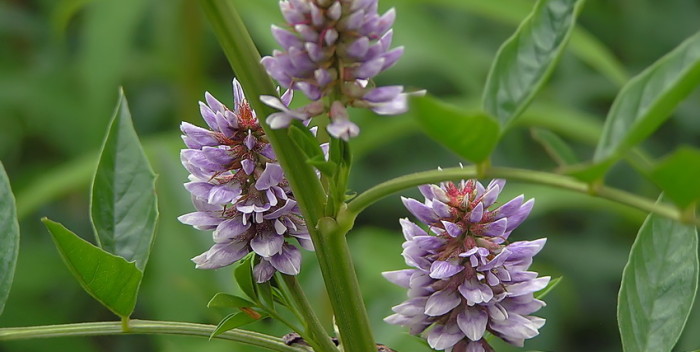The use of licorice
Licorice has a wide range of beneficial properties on the body due to its rich chemical composition. For many, licorice is associated with syrup, which is often given for colds as an expectorant of natural origin. We will tell you about what else licorice is useful in in our article.
Content
Useful properties of licorice
Licorice has a second name - licorice, which many have also heard about. This plant has a very rich composition, which contains salts, organic acids, starch, glucose, and mucus. In addition, there is a considerable presence in licorice of minerals, vitamins, gums, flavonoids, sucrose, asparagine, glycyrrhizin and much more. But the special value of licorice is given by unique natural compounds that have an effect similar to how hormones produced by the adrenal glands affect the body. Licorice is a very good wound healing agent. It has enveloping, antispasmodic, antimicrobial, anti-viral and antipyretic properties.
But licorice has found its application not only in medicine. Its other properties are actively used in the industrial industry. Various marinades, syrups, extracts, sugar substitutes are prepared from it. In the West, for example, liquorice sweets are very popular. It is added to foamy drinks: beer, coca-cola, kvass, as it affects the foaming process. You can even find recipes with licorice leaves. 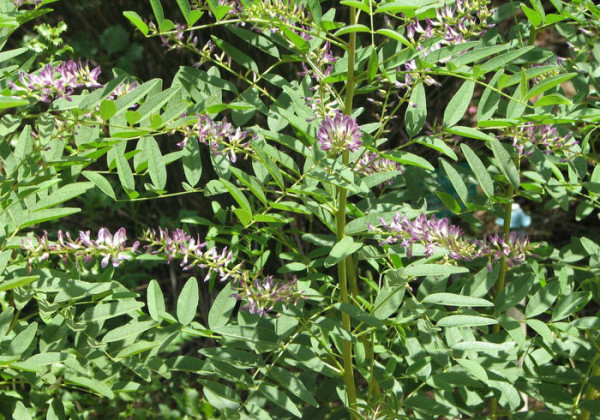
In ancient China, they were firmly convinced that licorice helps a person to prolong life, keep youth and stay beautiful. To some extent, they were right, because on the basis of licorice preparations are being prepared that reduce the level of bad cholesterol in the blood, contribute strengthening immunity, normalize the thyroid gland, work on the principle of an antidepressant. All this can really prolong life, and a healthy one. For medicinal purposes, licorice has been used for a very, very long time, so inspired conclusions can be drawn from many years of practice. It has been proven to be highly effective for dry cough, bronchitis, pneumonia, tuberculosis and other respiratory diseases. The beneficial effect of licorice on the work of the digestive tract is noted. Under the influence of this plant, ulcers heal very quickly, intestinal motility is normalized, the formation of juice in the stomach, you can get rid of persistent constipation.
A decoction based on licorice has a beneficial effect on the nervous system, helps to cope with the feeling of fatigue, and helps to normalize sleep. Licorice has a very good effect on the state of hormonal levels, and also maintains a normal level of oxygen in the body. Often, licorice is prescribed for existing pathologies of the kidneys and liver, kidney stones, in the presence of inflammatory processes in the bladder. But higher efficiency is noted with the use of licorice. in tandem with other herbs. Strong detoxifying properties make licorice very useful as a neutralizer of the toxic effects of certain drugs, as well as for all kinds of poisoning. 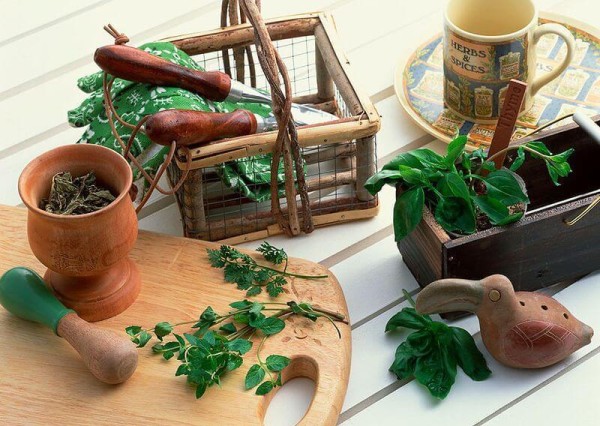
With equal success, licorice can be used to treat external skin problems. Dermatitis, fungus, eczema, wounds and burns, etc. succumb to it. In this case, licorice is used as compresses.
The harm of licorice
With proper use and compliance with all dosages and duration of the course, licorice can only cause harm if there are contraindications to it, which we will explain in the appropriate section. In other cases, the most serious thing that can manifest itself is side effects, which are expressed in dizziness, pain in the joints and nausea. This happens very rarely, but if it does happen, then it is better to refuse to take licorice.
Contraindications of licorice
Like any other remedy, licorice has contraindications, which include:
- irritated mucous membrane of the digestive tract;
- hypertension, overactive adrenal glands, heart problems;
- it is unacceptable to use licorice with concurrent administration of drugs that contain potassium;
- individual intolerance;
- perinatal period;
- lactation period;
- blood clotting disorders;
- there is risk of occurrence to bleeding and thrombosis..
The use of licorice for children 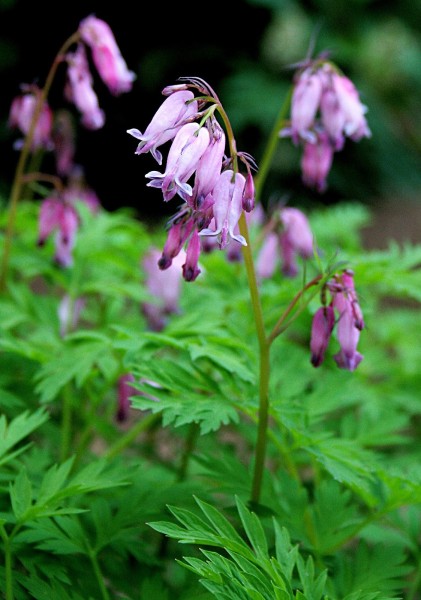
For children, licorice is often used in the form of a syrup prescribed by pediatricians. Such a remedy helps well with both dry and wet coughs, but even some eating disorders, as well as problems in the functioning of the digestive tract, can be treated with this syrup.
Licorice syrup helps to separate and release phlegm, is a natural pain reliever, has anti-inflammatory and antimicrobial effects. It promotes healing of the mucous membrane and actively enhances immunity, therefore it can be used as an immunomodulator. The duration of any course of using the syrup is 10 days, its duration can be increased, but only after consultation with an observing specialist.
Before giving syrup to a child, it is worth knowing that licorice can give side effects, which are often expressed in the occurrence of itching, swelling, diarrhea, inflammation on the skin, and a rash. If, after starting the intake, you find any of the listed symptoms in your child - immediately stop licorice treatment and choose a more appropriate treatment.
The dosage of licorice syrup for children depends on their age:
- from one to three years old - 2.5 ml;
- from three to six years - no more than 5 ml;
- from six to nine years old - 7.5 ml;
- from nine to twelve years old - 10 ml.
As a rule, the syrup is drunk three times a day, half an hour after the meal. It is advisable to drink the product with water. Such syrup is contraindicated for babies under one year old, and before giving the syrup to children from one year old to three, it is imperative to consult a pediatrician.
How to take licorice 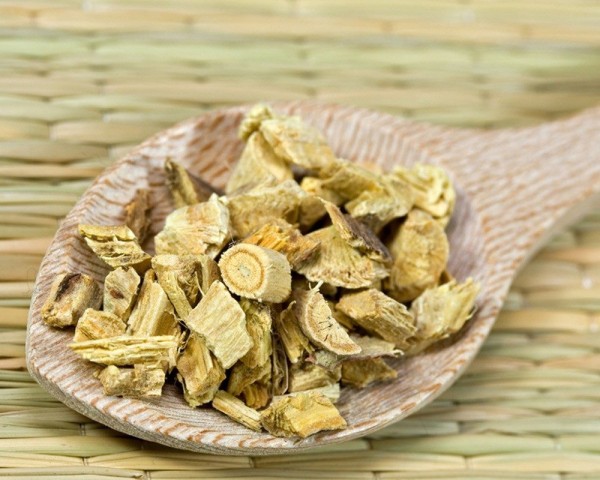
Licorice syrup can be purchased ready-made at the pharmacy, or you can prepare it yourself. For both adults and children, you can prepare a remedy according to one recipe:
- Mix 4 g of licorice root extract with sugar syrup in an amount of 80 g, add about 10 g of vodka to the composition. Stir well and pour into a container with a tight-fitting lid for storage.
This composition can be used for colds, coughs, gastritis, ulcers. Licorice is taken according to the following scheme: 5-10 ml of the prepared product is washed down with a glass of warm tea or plain water. And so about two or three times during the day. If a pharmaceutical preparation is used inside, then you need to carefully read and strictly follow the instructions that are attached by the manufacturer.
The use of licorice
You can use licorice at home in different ways. Most often, medicinal decoctions and tinctures are prepared on it. We offer you some useful recipes that may well come in handy:
- To make tea from licorice, you just need to brew the crushed root of the plant like regular black tea. Such a drink will become a pleasant medicine for colds, as well as a strong prophylactic agent against many diseases. To get the benefits, it is enough to drink just one cup a day. To diversify the taste of the drink, you can add mint, lemon balm and other medicinal herbs to it.
- Licorice decoction. Put about 10 g of dried and chopped licorice roots in a saucepan and pour in a glass of boiling water. Place the container in a water bath for 15 minutes, and then settle for 40 minutes. Strain the finished infusion and pour in boiled water so that the volume of the composition reaches 200 ml. The finished broth is taken orally in a large spoonful five times a day. You can drink the composition in two large spoons, but only three times a day. The duration of the course is 10 days. It is a versatile medicine that helps with all the health problems we wrote about earlier.
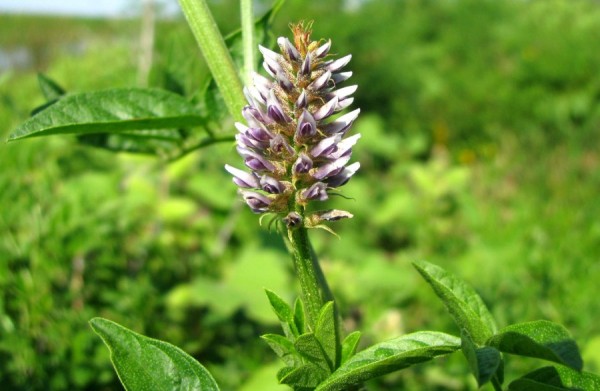
- Licorice tincture. Fry a small spoonful of dried and chopped licorice roots in a dry frying pan, then add a glass of boiling water to them and let it brew under a closed lid for 5-7 hours and you're done. You need to take the tincture in a third of the glass. This composition is useful for arthritis, ulcers and various tumors.
- Another option for making liquorice tincture. Pour a small spoonful of crushed and dried root with a glass of boiling water and let it stand for an hour, and then strain the composition. This infusion is used three times a day for a third of a glass. A good composition that will help to establish the work of the adrenal glands and gastritis.
- Licorice root juice, which is good for ulcers and gastritis. Unlike previous options, this product is prepared from fresh plant rhizomes. Use a juicer to squeeze the juice out of the roots. Before consumption, 100 g of "nectar" is diluted with half a glass of hot water. The resulting composition is divided into exactly three parts and drunk during the day.
Lymph cleansing with licorice
The process of cleansing lymph with licorice came to us from Ayurveda. You can understand that lymph cleansing is necessary by the following symptoms:
- laryngitis;
- runny nose;
- bronchitis;
- pneumonia;
- tonsillitis.
According to Ayurvedic laws, the ideal time for cleansing is between 6 and 10 am. During this time, you need to consume at least 4 liters of tea made from licorice. After a while, the person will feel fever, then vomiting will begin, which is evidence of cleansing. But such harsh methods should not be applied on yourself, because there is a more gentle and more pleasant option. 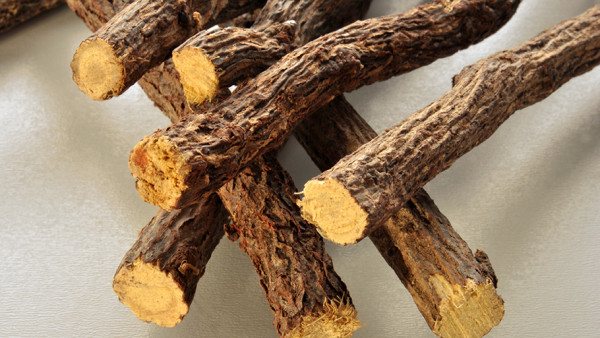
One of the above-mentioned ways to take note is still worthwhile - it is better to schedule the cleaning time in the morning. Every day, for ten days, you need to consume a decoction of licorice. Drink it in small portions, but regularly.
Making a cleanse drink is as simple as adding a large spoonful of licorice syrup in a glass of hot water and drinking on an empty stomach in the morning. And so 10 days in a row.
To cleanse lymph, you can use decoctions, prepare them according to the recipes that we wrote about earlier.
Whether the lymph is actually cleared in this way or not, there is no exact answer to this yet. But on the other hand, if a person has no contraindications to the use of licorice, then such a course will not only not hurt, but also help to strengthen health, strengthen immunity. Even if the lymph is not cleansed from this, a positive result will still be.
Licorice during pregnancy
The body of a pregnant woman is susceptible to attacks by viruses and bacteria, which carry a serious danger. Since medications of chemical production are often contraindicated in the perinatal period, doctors try to select compositions for treatment as close as possible to natural. Alas, despite all its useful properties, taking licorice while waiting for a crumb is completely undesirable, although it cannot be completely ruled out. It happens that if no means help, then the doctor can prescribe such a medicine, but in no case can you prescribe it to yourself. Before use, licorice syrup must be diluted with water.
With an inconsistent intake, the use of licorice can provoke disturbances in the water-salt balance, which will be reflected in the appearance of severe edema, an increase in blood pressure and hormonal violence.
